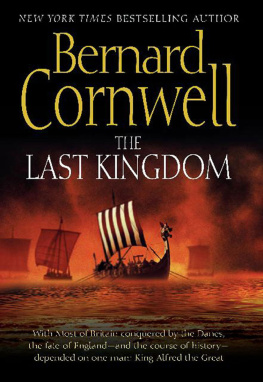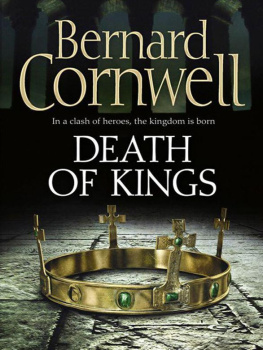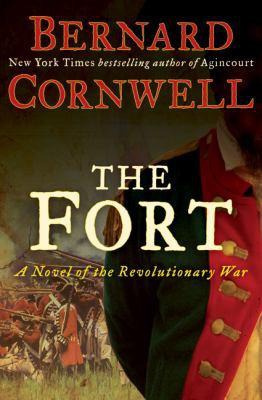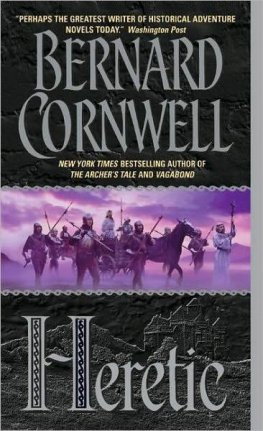Bernard Cornwell - Grail Quest Series 1 - Harlequin (UK), The Archers Tale (US)
Here you can read online Bernard Cornwell - Grail Quest Series 1 - Harlequin (UK), The Archers Tale (US) full text of the book (entire story) in english for free. Download pdf and epub, get meaning, cover and reviews about this ebook. year: 2005, publisher: HarperCollins, genre: Adventure. Description of the work, (preface) as well as reviews are available. Best literature library LitArk.com created for fans of good reading and offers a wide selection of genres:
Romance novel
Science fiction
Adventure
Detective
Science
History
Home and family
Prose
Art
Politics
Computer
Non-fiction
Religion
Business
Children
Humor
Choose a favorite category and find really read worthwhile books. Enjoy immersion in the world of imagination, feel the emotions of the characters or learn something new for yourself, make an fascinating discovery.

- Book:Grail Quest Series 1 - Harlequin (UK), The Archers Tale (US)
- Author:
- Publisher:HarperCollins
- Genre:
- Year:2005
- Rating:5 / 5
- Favourites:Add to favourites
- Your mark:
- 100
- 1
- 2
- 3
- 4
- 5
Grail Quest Series 1 - Harlequin (UK), The Archers Tale (US): summary, description and annotation
We offer to read an annotation, description, summary or preface (depends on what the author of the book "Grail Quest Series 1 - Harlequin (UK), The Archers Tale (US)" wrote himself). If you haven't found the necessary information about the book — write in the comments, we will try to find it.
Bernard Cornwell: author's other books
Who wrote Grail Quest Series 1 - Harlequin (UK), The Archers Tale (US)? Find out the surname, the name of the author of the book and a list of all author's works by series.
Grail Quest Series 1 - Harlequin (UK), The Archers Tale (US) — read online for free the complete book (whole text) full work
Below is the text of the book, divided by pages. System saving the place of the last page read, allows you to conveniently read the book "Grail Quest Series 1 - Harlequin (UK), The Archers Tale (US)" online for free, without having to search again every time where you left off. Put a bookmark, and you can go to the page where you finished reading at any time.
Font size:
Interval:
Bookmark:


Published by HarperCollins Publishers 2000
This is a work of fiction. Names, characters, places, and incidents either are the product of the authors imagination or are used fictitiously. Any resemblance to actual persons, living or dead, events, or locales is entirely coincidental.
All rights reserved
Copyright 2000 by Bernard Cornwell
ISBN-13:9780061796791
ISBN-10: 0061796794
Bernard Cornwell asserts his moral right to be identified as the author of this work.
A catalogue record for this book is available from the British Libraries
No part of this book may be reproduced or transmitted in any form or by any means, electronic or mechanical, including photocopying, recording, or by any information storage and retrieval system, without the written permission of the publisher, except where permitted by law
The treasure of Hookton was stolen on Easter morning 1342. It was a holy thing, a relic that hung from the church rafters, and it was extraordinary that so precious an object should have been kept in such an obscure village. Some folk said it had no business being there, that it should have been enshrined in a cathedral or some great abbey, while others, many others, said it was not genuine. Only fools denied that relics were faked. Glib men roamed the byways of England selling yellowed bones that were said to be from the fingers or toes or ribs of the blessed saints, and sometimes the bones were human, though more often they were from pigs or even deer, but still folk bought and prayed to the bones. A man might as well pray to Saint Guinefort, Father Ralph said, then snorted with mocking laughter. They're praying to ham bones, ham bones! The blessed pig!
It had been Father Ralph who had brought the treasure to Hookton and he would not hear of it being taken away to a cathedral
or abbey, and so for eight years it hung in the small church, gathering dust and growlng spider webs that shone silver when the
sunlight slanted through the high window of the western tower. Sparrows perched on the treasure and some mornings there were bats hanging from its shaft. It was rarely cleaned and hardly ever brought down, though once in a while Father Ralph would demand that ladders be fetched and the treasure unhooked from its chains and he would pray over it and stroke it. He never boasted of it. Other churches or monasteries, possessing such a prize, would have used it to attract pilgrims, but Father Ralph turned visitors away. It is nothing, he would say if a stranger enquired after the relic, a bauble. Nothing. He became angry if the visitors persisted. It is nothing, nothing, nothing!" Father Ralph was a frightening man even when he was not angry, but in his temper he was a wild-haired fiend, and his flaring anger protected the treasure, though Father Ralph himself believed that ignorance was its best protection for if men did not know of it then God would guard it. And so He did, for a time.
Hookton's obscurity was the treasure's best protection. The tiny village lay on England's south coast where the Lipp, a stream that was almost a river, flowed to the sea across a shingle beach. A half-dozen fishing boats worked from the village, protected at night by the Hook itself, which was a tongue of shingle that curved around the Lipp's last reach, though in the famous storm of 1322 the sea had roared across the Hook and pounded the boats to splinters on the upper beach. The village had never really recovered from that tragedy. Nineteen boats had sailed from the Hook before the storm, but twenty years later only six small craft worked the waves beyond the Lipp's treacherous bar. The rest of the villagers worked in the saltpans, or else herded sheep and cattle on the hills behind the huddle of thatched huts which clustered about the small stone church where the treasure hung from the blackened beams. That was Hookton, a place of boats, fish, salt and livestock, with green hills behind, ignorance within and the wide sea beyond. Hookton, like every place in Christendom, held a vigil on the eve of Easter, and in 1342 that solemn duty was performed by five men who watched as Father Ralph consecrated the Easter Sacraments and then laid the bread and wine on the white-draped altar. The wafers were in a simple clay bowl covered with a piece of bleached linen, while the wine was in a silver cup that belonged to Father Ralph. The silver cup was a part of his mystery. He was very tall, pious and much too learned to be a village priest. It was rumoured that he could have been a bishop, but that the devil had persecuted him with bad dreams and it was certain that in the years before he came to Hookton he had been locked in a monastery's cell because he was possessed by demons. Then, in 1334, the demons had left him and he was sent to Hookton where he terrified the villagers by preaching to the gulls, or pacing the beach weeping for his sins and striking his breast with sharp-edged stones. He howled like a dog when his wickedness weighed too heavily on his conscience, but he also found a kind of peace in the remote village. He built a large house of timber, which he shared with his housekeeper, and he made friends with Sir Giles Marriott, who was the lord of Hook-ton and lived in a stone hall three miles to the north. Sir Giles, of course, was a gentleman, and so it seemed was Father Ralph, despite his wild hair and angry voice. He collected books which, after the treasure he had brought to the church, were the greatest marvels in Hookton. Sometimes, when he left his door open, people would just gape at the seventeen books that were bound in leather and piled on a table. Most were in Latin, but a handful were in French, which was Father Ralph's native tongue. Not the French of France, but Norman French, the language of England's rulers, and the villagers reckoned their priest must be nobly born, though none dared ask him to his face. They were all too scared of him, but he did his duty by them; he christened them, churched them, married them, heard their confessions, absolved them, scolded them and buried them, but he did not pass the time with them. He walked alone, grim-faced, hair awry and eyes glowering, but the villagers were still proud of him. Most country churches suffered ignorant, pudding-faced priests who were scarce more educated than their parishioners, but, Hookton, in Father Ralph had a proper scholar, too clever to be sociable, perhaps a saint, maybe of noble birth, a self-confessed sinner, probably mad, but undeniably a real priest.
Father Ralph blessed the Sacraments, then warned the five men that Lucifer was abroad on the night before Easter and that the devil wanted nothing so much as to snatch the Holy Sacraments from the altar and so the five men must guard the bread and wine diligently and, for a short time after the priest had left, they dutifully stayed on their knees, gazing at the chalice, which had an armorial badge engraved in its silver flank. The badge showed a mythical beast, a yale, holding a grail, and it was that noble device which suggested to the villagers that Father Ralph was indeed a high-born man who had fallen low through being possessed of devils. The silver chalice seemed to shimmer in the light of two immensely tall candles which would burn through the whole long night. Most villages could not afford proper Easter candles, but Father Ralph purchased two from the monks at Shaftesbury every year and the villagers would sidle into the church to stare at them. But that night, after dark, only the five men saw the tall unwavering flames. Then John, a fisherman, farted. Reckon that's ripe enough to keep the old devil away," he said, and the other four laughed. Then they all abandoned the chancel steps and sat with their backs against the nave wall. John's wife had provided a basket of bread, cheese and smoked fish, while Edward, who owned a saltworks on the beach, had brought ale.
Font size:
Interval:
Bookmark:
Similar books «Grail Quest Series 1 - Harlequin (UK), The Archers Tale (US)»
Look at similar books to Grail Quest Series 1 - Harlequin (UK), The Archers Tale (US). We have selected literature similar in name and meaning in the hope of providing readers with more options to find new, interesting, not yet read works.
Discussion, reviews of the book Grail Quest Series 1 - Harlequin (UK), The Archers Tale (US) and just readers' own opinions. Leave your comments, write what you think about the work, its meaning or the main characters. Specify what exactly you liked and what you didn't like, and why you think so.

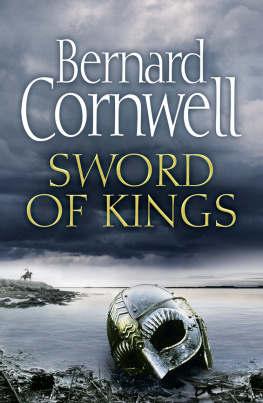



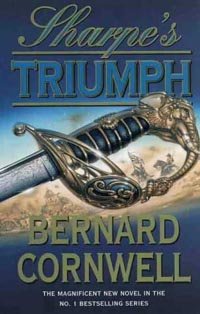
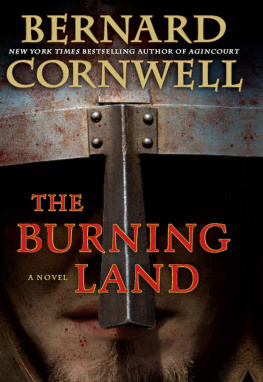
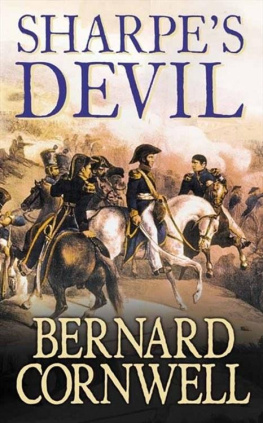
![Bernard Cornwell - The Grail Quest - The Archer’s Tale / Vagabond / Heretic [ATBC]](/uploads/posts/book/131313/thumbs/bernard-cornwell-the-grail-quest-the-archer-s.jpg)
